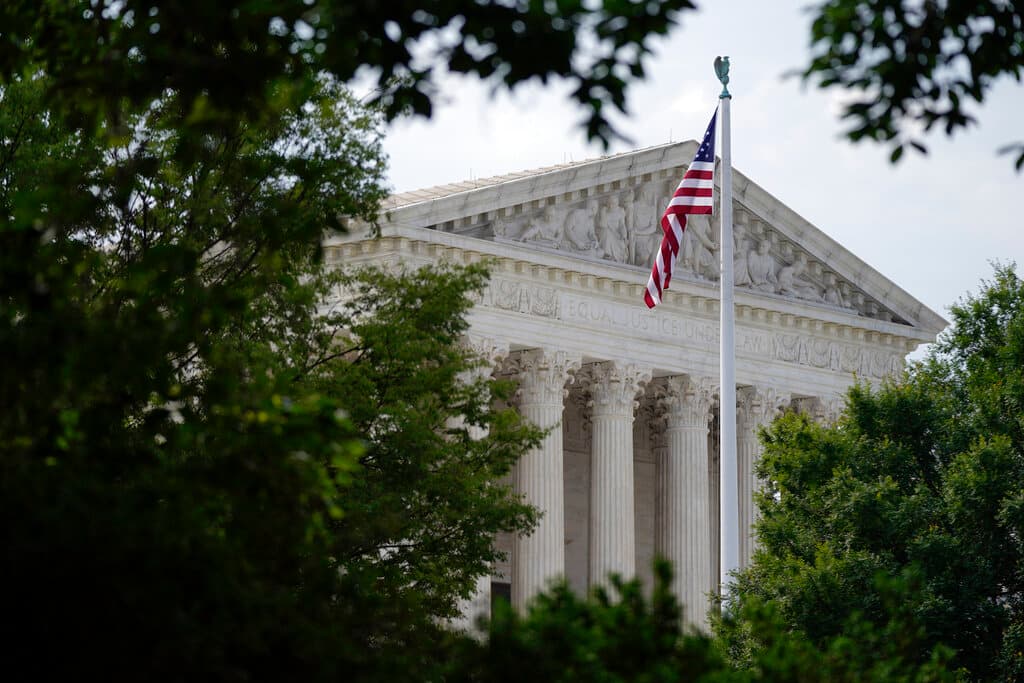DeSantis Ally in Florida Wants To Rewrite Libel Law
The bill calls on the Supreme Court to overturn New York Times v. Sullivan and empower the states to legislate on issues of libel, defamation, and slander.

A legislative ally of Governor DeSantis in Florida has introduced a pair of bills aimed at challenging the landmark New York Times v. Sullivan Supreme Court decision that for decades has guided libel law in America and radically broadening the definition of defamation, libel, and slander in the state.
The Florida state representative, Robert “Alex” Andrade, introduced the bills after Mr. DeSantis — who has made a sport out of taunting the media — expressed a desire to “stand up for the little guy against these massive media conglomerates.”
“When the media attacks me, I have a platform to fight back,” Mr. DeSantis said at a Fox News roundtable on February 7. “When they attack everyday citizens, these individuals don’t have the adequate resources to fight back.”
Mr. Andrade’s bills would change that. The first of the laws, Florida HB 951, specifically targets the “actual malice” standard established by the New York Times v. Sullivan decision, which requires those alleging libel to prove that a news outlet published information knowing that it was false or with “reckless disregard” for whether it was true.
According to the Florida bill, this standard has “fostered an environment in which defamatory falsehoods are routinely published without fear of consequence, but truthful speech is often self-censored for fear of being tarnished without an adequate remedy at law.”
The bill calls on the Supreme Court to overturn New York Times v. Sullivan and empower the states to legislate on issues of libel, defamation, and slander.
The vice president of the New York County Lawyers Association, Richard Swanson, told the Sun that the bill is challenging a precedent aimed at maintaining freedom of the press.
Mr. Swanson said the Sullivan case arose during the civil rights era, when defamation doctrines and the risk of “ruinous financial loss” were used to try to prevent the press from reporting on segregation and desegregation.
At the time, all that alleged victims of defamation needed to prove in Alabama, the state where the case arose, was that there were mistakes in reporting that likely harmed one’s reputation.
The Florida bill also would narrow the definition of “public figure,” excluding people whose “fame or notoriety arises solely” from defending themselves against an accusation in public, giving an interview, public employment other than elected office or appointment, and videos, images, or statements on the internet.
Under the terms of the second bill, HB 991, these more narrowly defined public figures would not need to prove actual malice in most cases. The bill, also introduced by Mr. Andrade, specifically targets journalists and expands the definition of defamation.
According to the bill, anonymous statements would be automatically considered false. It also expands defamation to include statements that are “inherently implausible” or where there are “obvious reasons to doubt the veracity” of claims, which are vaguely defined.
Another provision specifically states that an allegation that someone has discriminated against another person based on their “race, sex, sexual orientation, or gender identity” would be inherently defamatory.
Those who are accused of discrimination would be entitled to damages of “at least” $35,000. Defendants in these cases would not be able to prove that they were discriminated against if allegedly discriminatory statements were based on one’s religious or scientific beliefs.
According to Mr. Swanson, “there’s just no basis” for these specific carve outs asserting that “anonymous quotes are inaccurate, and allegations of discriminatory behavior are also typically inaccurate.”
A professor of law at Cornell University and associate director at the Stanton Foundation First Amendment Clinic, G.S. Hans, said the proposals are unlikely to achieve their stated goals.
“My view is that this legislation is profoundly unserious and likely unconstitutional under existing precedent,” Mr. Hans told the Sun. “Two justices have expressed misgivings about Sullivan, though at this stage I don’t think the votes are there to change the existing law.”
Mr. Hans also warned that though overturning the case has become a project of some conservative activists, its effects would reshape the entire news and press landscape.
“The damage from limiting or overturning Sullivan would not fall merely on one constituency, and would harm the ability of all speakers to engage in public discourse without fear of harassing litigation designed to suppress individual views,” Mr. Hans said.

